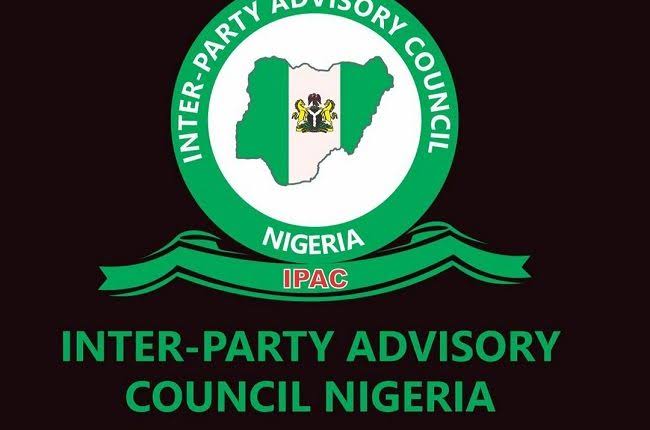The Inter-Party Advisory Council (IPAC) has advised the National Assembly to expunge the clauses regarding direct primary election in the 2021 Electoral Amendment Bill, for it to be signed by President Muhammadu Buhari.
IPAC National Chairman, Yabagi Sani, gave the advice at a news conference on Monday in Abuja.
Sani stated that IPAC was impressed with the lawmakers for the courage, high level of commitment and patriotism they exhibited in the passage of the bill.
They described the action as groundbreaking and transformative in the annals of the National Assembly.
However, Sani stated that IPAC observed that the only expressed grouse of the president was the provision in the bill for mandatory use of direct primary elections in the selection of flag bearers of all the political parties.
“While many may not concede to the explanation of security challenges given by the president, it will be difficult however, to disagree with him on the reason of complex logistics and huge financial burden that direct primary elections will imply for the Independent National Electoral Commission (INEC).
“Many have canvassed the view that no amount of money should be considered too high in the efforts to sanitise the nation’s electoral process and that the legislature should, therefore, invoke its veto powers to overrule the president.
“To us in IPAC, such an action may be tantamount to a wholesale wrecking of the boat.
“We are of the view that, much as we may cherish its perceived benefits, the country at this stage of its democracy, does not appear to be sufficiently ripe and prepared for the direct primary election model in the selection of political party flag bearers.
“Also, against the backdrop of the president’s decisive aversion to this particular provision of the electoral bill, the use of veto by the legislature may merely result in a fruitless exercise if at the end of the day, its implementation is not supported by the required funding by the executive,” he said.
Sani said that IPAC was inclined to the opinion that regards the National Assembly’s position on indirect primaries as amounting to an attempt to usurp the constitutional rights of parties as to the method of choice of party flag bearers.
He said that the lawmakers might have acted as interlopers by trying to run political parties from the hallowed chambers.
Sani noted that objectively in the context of international practices, primaries elections could not be legislated upon, but best left to the discretion of the political parties.
“We believe and wish to accordingly admonish that as elected officials, the National Assembly and executive arms should be rather more concerned about ensuring the integrity of the electoral process and how to reduce the costs of democratic practices and make our democracy more resilient.
“The way out of the logjam, in our view in the IPAC, is for the shifting of grounds by the legislature and the executive arms of government for a compromise and amicable resolution resulting in a win-win scenario.
“This should not be a difficult task given that the two arms are incidentally controlled by the same political party, the APC.
“The IPAC is accordingly, recommending that the Legislature should accede to the expunging of the clauses regarding direct primary election thereby saving the other equally important provisions among which, is the one on the mandatory electronic transmission of election results by INEC.
“By that, we believe that President Buhari should have no further reason to withhold his assent.
“To avoid further pitfalls in the remodeling and implementation of this law, we suggest that the legislature and the executive should consider carrying IPAC along.
“This is in view of the fact that the Bill directly affects our members, the political parties, who will implement the law when eventually enacted. He who wears the shoes knows where it pinches,” Sani said.
He also called on the legislature and the executive to come up with measures to address “unconscionable defections” of elected officials from one party to another to save the country’s democracy.
The chairman described such defection as a show of political adventurism, immoral, a rascally display of impunity, a shameless disregard for the constitution and an audacious rape of the mandate of the electorate.
Sani said that IPAC believed it was utterly illegal for an elected official who was elected on the platform and manifesto of one political party to abandon such a party while in office, without the constitutional conditions precedent to do so.
“IPAC wishes to point to the fact that frivolous and willful “cross carpeting” only exists in a parliamentary democracy and not in a presidential system of democracy that is extant in Nigeria.
“It is our view that any elected official who feels that he or she has reasons to change his political party, our advice in IPAC is that such officials should resign and seek a fresh mandate from the electorate on the platform of his new political party.”
Sani disclosed that IPAC was working on establishing in Abuja, a pan African democracy institute to be known as, Africa Institute for Democracy.
“The thrust of the concept is the deepening and spreading of all-inclusive democracy on the African continent through the creation of a centre for research and teaching of democracy with bias on African peculiar characteristics.”
He said that soon in the New Year, IPAC would be setting up a high-powered body of experts and influential persons to work on the realisation of the project.
